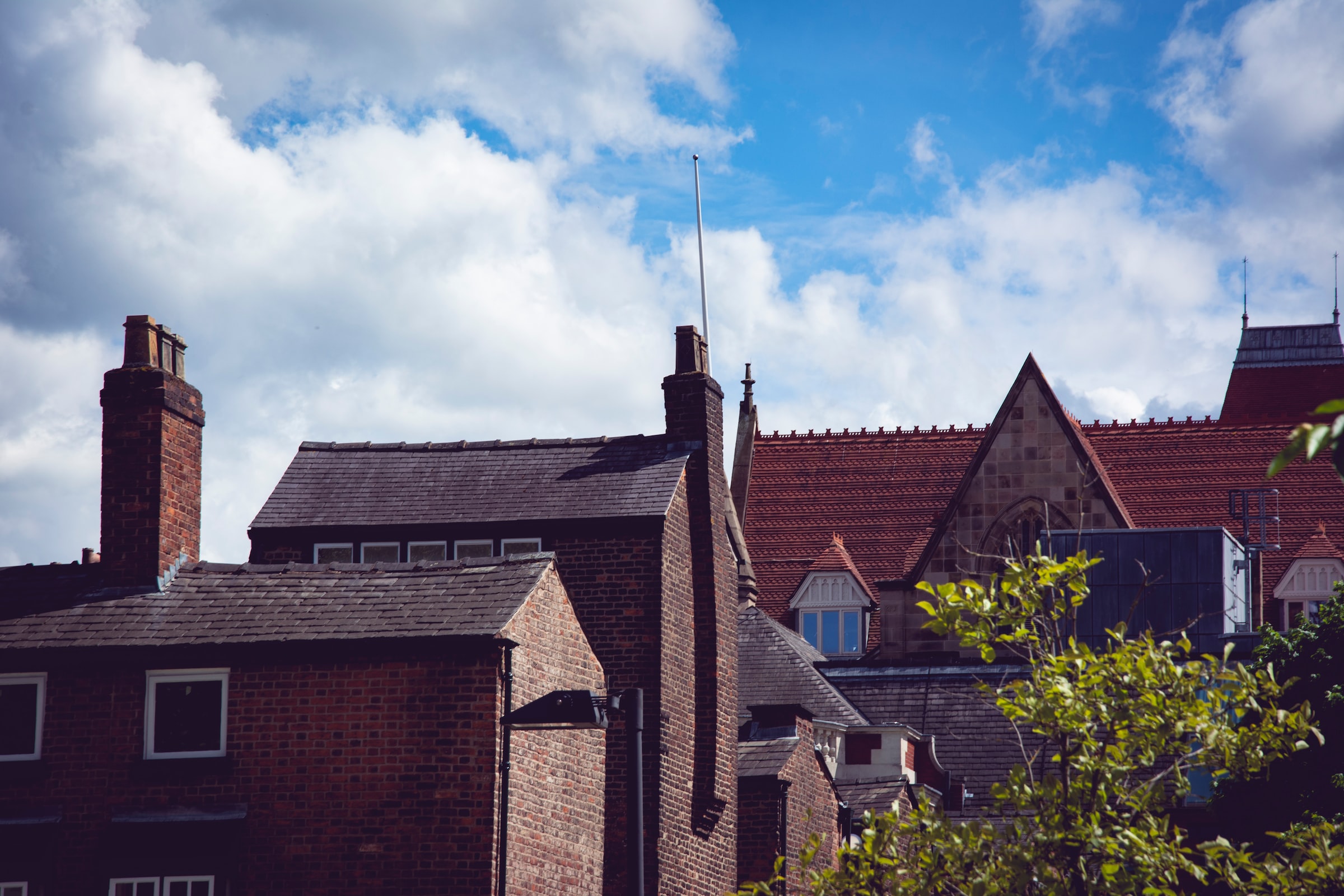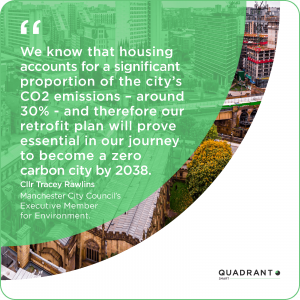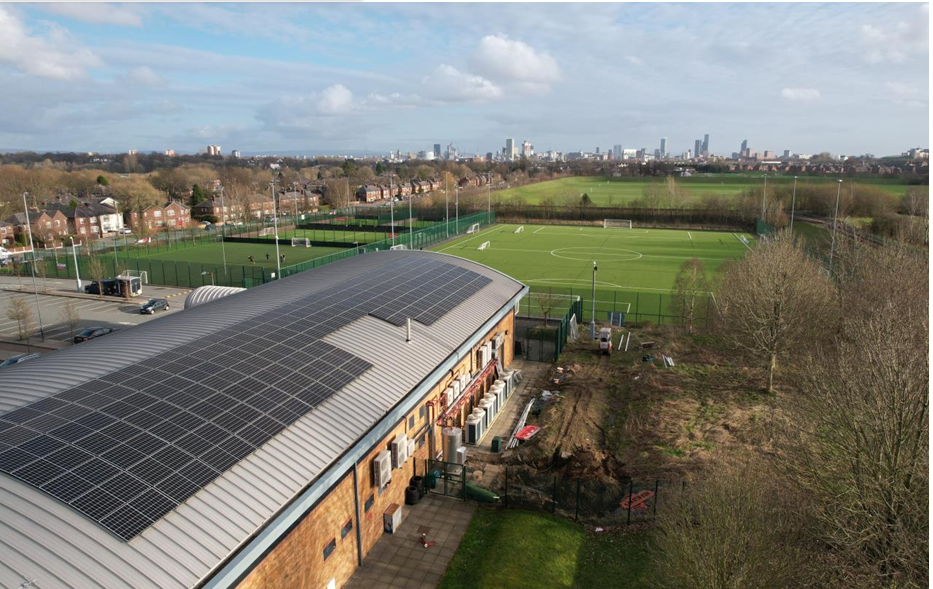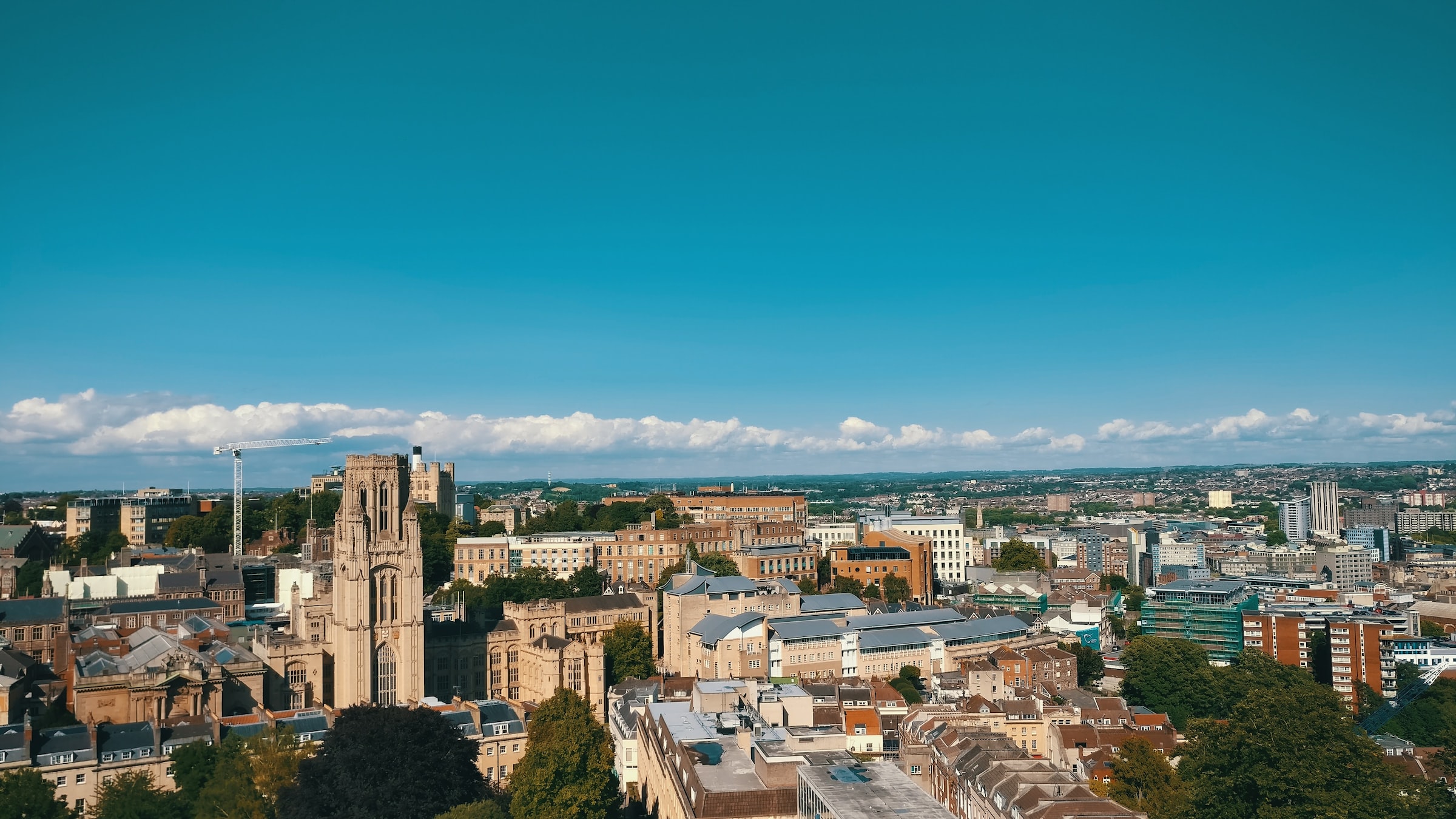How is Manchester Tackling the Low Carbon Housing Retrofit Challenge?

Manchester City Council’s Retrofit Plan will outline the pathway to zero carbon housing, which will be key to realising the target to become a zero carbon city by 2038. Housing Industry Leaders explores the report and how it highlights the challenges the housing industry needs to overcome.
Setting out a retrofit roadmap, challenges that need to be tackled and achievements to date, the report makes clear the urgency needed to work in collaboration with all housing providers to improve the energy efficiency of Manchester homes and move away from fossil fuel-based heating.
Retrofitting Manchester’s housing stock will be essential when it comes to lowering tenants’ energy bills during the cost-of-living crisis, improving the health of residents and improving the standards in the city’s existing housing stock.
In addition to this, retrofitting will contribute to the reduction of carbon emissions. This is vital as the Manchester Climate Change Framework 2022 estimates that housing stock makes up circa 30 per cent of Manchester’s total carbon emissions.
Manchester Is Aiming To Retrofit One-Third Of All Social Housing
Manchester City Council has committed to becoming a zero carbon city by 2038, to reduce its direct CO2 emissions by 50 per cent by 2025 and through the new Housing Strategy, a target of retrofitting one-third of all social housing (circa 70k homes) by 2032 has been set.
To meet these commitments, 84000 properties will need to be retrofitted in some way. The average cost of a full property retrofit programme could be between £25,000 and £30,000.
Currently, funding for retrofitting works is limited and the total cost of achieving a 50 per cent CO2 reduction by 2025 could be £2.5 billion. The cost challenge will be further exacerbated by the current growing costs of materials and building supplies, along with labour shortages.
Retrofitting Work Must Be Scaled Up
Going forward, the Council will look to increase the scale and pace of retrofit activity and identify more funding resources to deliver the works, using both internal funding through the Housing Revenue Account (HRA) and external funding. This will require national funding to be made available, prioritising sustainability work.
Kickstarting the large-scale action on Council-owned properties alongside other social housing landlords across Greater Manchester in collaboration with GMCA, the Council is currently preparing a submission for the second round of the Social Housing Decarbonisation Fund to invest in further retrofit works over the next two years.

Housing associations currently manage and own 70 per cent of the city’s social housing stock (51,600 homes). These organisations are developing costed investment plans for zero carbon housing and the Council is working with these companies as part of the Manchester Housing Providers Partnership to share learning around retrofit investment.
Cllr Gavin White, Manchester City Council’s executive member for housing and development, said: “The scale of the retrofit challenge is undoubtedly huge, but it’s one we need to tackle head-on, and we need to do it now.
“It’s encouraging to see the impact of the £83m investment the city has already made in energy efficiency and sustainable technologies, and we know residents have welcomed the cost-saving measures in their homes.
“But we now need to scale up this work in the coming years. There is also a secondary opportunity to support the city’s economy as these works represent long-term employment opportunities.”
and it’s important that we can help our residents gain the necessary retrofit skills and ensure they can take advantage of the incoming jobs.
A 49 Per Cent Reduction In CO2 Emissions In Council Houses Has Been Seen
To date, £83 million has been spent on energy efficiency improvements to council properties in North Manchester since 2005 leading to a 49 per cent reduction in CO2 emissions (from 55,000 to 28,000 tonnes of CO2) in the homes that have received investment.
All homes under Manchester City Council’s three Private Finance Initiative (PFI) schemes have undergone energy efficiency and carbon reduction works, improving the average EPC rating from E to C.
One of these, the Miles Platting PFI already has a sustainability strategy in place to meet a 50 per cent emissions reduction by 2031 and net zero by 2037. A zero carbon plan is said by the Council to be in place for the other two PFIs (Plymouth Grove and Brunswick) by the end of 23/24.
Cllr Tracey Rawlins, Manchester City Council’s executive member for environment, said: “We need to act now – alongside our partners in the public and private sector – to meet this target,”
but these investments are also needed to support our residents through the ongoing, unprecedented cost-of-living and energy crisis.
When it comes to the private rented sector, it represents a significant challenge for Manchester with 93,400 homes in the city and around 10,000 landlords. This makes it difficult to support the entire sector to make energy improvements and there currently isn’t any specific support for landlords.
Some funding streams could apply to private rented homes, however, this is said by the Council to need further investigation.

